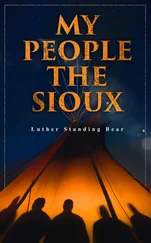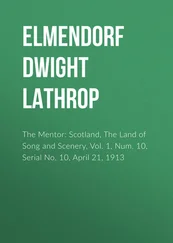As soon as I could walk steadily, my training in obedience began. I was asked to do little errands and my pride in doing them developed. Mother would say, ‘Son, bring in some wood.’ I would get what I was able to carry, and if it were but one stick mother would in some way show her pleasure. She had a way of saying ‘Son’ that expressed great affection for me. It was in doing this very errand for her that I met with my first childish mishap. I was a very small child, but I came into the tipi with some sticks for the fire and in my eagerness I stumbled and fell headlong. One of my hands went into the live coals and I have the scars to this day.
I not only obeyed mother, but I just as readily obeyed father, grandmother, and grandfather. This, no doubt, helped in keeping peaceful relations in the family group.
But lessons in obedience were not the only ones to begin at an early age. I was taught kindness to grandmother and to all old people. I saw my mother give frequently to them and I was allowed to give at the same time. I learned truthfulness, respect for the rights of all people, order, and like virtues. So each day, with a brightening mind, I learned by examples of kind action. Just as the tiny roots of a plant silently absorbed the earth food, so my childish consciousness absorbed the influences which surrounded me, especially the silent, subtle influence of my mother.
Lakota babies cried very little, as has often been noted and commented on by white writers. This habit of being quiet was not due to punishment but to training. It was, no doubt, dangerous in olden days to allow a child to cry, especially at night or when the camp was on the march. Children were told, ‘Be quiet, a witch might hear you.’ This is the only way in which Lakota children were frightened, so far as I know, until the white man came among us, and then mothers often said, ‘Be quiet, child, a white man may be near.’ So the white man was used to frighten little Indian children into silence. Indian women, and as might be expected, Indian children, were much frightened at the first white man they saw. Many times a white mother has said to her child, ‘Be good or a terrible Indian will get you.’ But just as many Indian mothers have quieted their children with the dread thought that a white man might be near. We with mature minds might ponder on this and see what we have really done to children with these foolish statements. We can see, if we are fair with ourselves, that much unnatural fear and hatred may have been bred in this way.
Now and then twins were born to a Lakota woman, but not often. In our tribe they were regarded as very mysterious beings. Twins were people, it was believed, who had lived with the tribe at some past time and had come back again to live life over. They were therefore regarded as old people and not young people. I have seen twins with ear-holes for earrings and this was proof that they had lived before with us. The spirits of little twins would hover about a tipi, lifting up the curtains and peeking in. They were then looking for a place in which to be reborn. They were visible only to certain people and when the person who saw them shouted or called for some one else to look, the twins disappeared. These little twin spirits always appeared about the tipi tied together with a rope.
The twins who were born among us had habits and characteristics that boys and girls born singly did not have. They were always doing things that ordinary boys and girls did not do. Though it was forbidden for Lakota brothers and sisters to speak and joke freely with one another, twin brothers and sisters were the closest of companions and often stood apart from the others, holding whispered conversations; and it would never be known what the whispered talk was all about. There were ties between twins that did not exist for the rest of us and they broke social laws that we were not permitted to break. Another strange thing was that if one of the twins died the other scarcely ever lived. Marriage sometimes brought about a break in companionship if the twins were brother and sister. However, if the twins were of the same sex the companionship usually continued. From the mother’s standpoint, twins were as well liked as other children and there was never any difference in the treatment of them.
As a child I was of just as great importance to my warrior father as I was to my attentive mother. He found it a great pleasure to provide for us both and much of the time he was away on the hunt procuring food and clothing. Whenever he was about the tipi we spent much time together. Indian fathers seem to enjoy their sons, and mine played often with me. It was a pastime with him to lie on the ground on his back and with his legs crossed toss me up and down on one foot. It was his delight and mine also to ‘play horse’ this way. Father sang to me, too, but not the childish songs and the lullabys that mother sang. He sang the brave or warrior songs, so I grew up loving the songs of my people and learning them as soon as I could speak.
Since father was training me also, the lessons that mother began were kept up by him. When I became sturdy enough to run he would tell me to bring his pony close to the tipi door so it could be bridled. One thing that I ran after more than anything else was the village whetstone. Usually there were but one or two of these useful articles in a village, so it was much in demand. Whenever father wanted to sharpen his arrows he sent me for the ‘izuza’ or rubbing-stone. I went from tipi to tipi until I had found the much-used article.
Father gave me my first pony and also my first lesson in riding. The pony was a very gentle one and I was so small that he tied me in place on the pony’s back. Not that I would suffer fright, but so that father could lead the pony about slowly while I got used to the sway of the animal’s motion. In time I sat my horse by myself and then I rode by father’s side. When I could keep pace with him and my pony stayed side by side with him, that was real achievement, for I was still very small indeed.
Such expressions as ‘I can’t,’ and ‘I don’t want to,’ found no place in my mind. I did not have to listen to long speeches on ‘how to be like father.’ A lesson, in fact, did not imply much conversation on either side. But since I was to learn to do the things that he did, I watched my father closely.
Certain ceremonies are considered very important in the life of a Lakota child and to these father attended. Of course, the morning of my birth, father had a man cry the news to the village and gave away a horse. But my first real ceremony took place a few days later. This was my naming ceremony. There are two other important ceremonies in the life of a Lakota child, and I, being the son of a chief, received them all.
The morning of my naming ceremony the singing of praise songs announced to the village that the ceremony was to take place. The singers stood by our tipi door and sang songs of praise for my father. When the people of the village had assembled, a praise singer called out, ‘Hear All! Hear all! The son of Standing Bear will be named. Hear all! Hear all! His name will be Plenty Kill.’ Mother came out of the tipi holding me in her arms. In the meantime father had selected an old man who was to receive the horse to be given away in honor of the event. Some one led the horse up and the end of the rope about its neck was placed in my tiny hands. He took the rope from my hands and extending his arms toward me said, ‘Ha-ye-e-e, Ha-ye-e-e,’ which meant both thanks and blessings for me. He led the horse away while the singers still sang songs of praise.
About nine months after my birth the second ceremony took place. At this time my ears were pierced and it was a much more impressive ceremony than the first. It was held during the sun dance when many bands were gathered together. It was customary to hold many minor ceremonies of various sorts before the actual Sun Dance began. There was much singing and much dancing by groups of performers. Also there was a great deal of giving and receiving of presents.
Читать дальше












